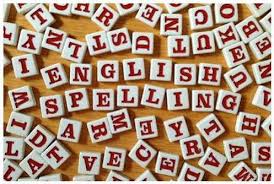
Let’s step back in history a moment. In 1066 the Normans invaded England and brought their French language with them. Since French is a Romance language descended from Latin, this gave Latin an indirect influence on the English language. In the late 15th century, English had a Flemish influence courtesy of a Flemish compositor whose job was to arrange type for printing. Like many non-native speakers, he was bewildered by the random nature of English spelling. So, when he saw the word ‘gost’ (spelt ‘gheest’ in Flemish), he decided to spell it the Flemish way, with an h.
The Flemish h in ‘ghost’ is one of many examples that show that English spelling can be random and unsystematic. However, the original monks who wrote down Anglo-Saxon English in a Latin alphabet were the exception. Every word was pronounced phonetically so the g in gnome would be pronounced as would the k in know. Unfortunately, the alphabet they devised did not have enough letters to represent all the sounds in spoken English and another headache for non-native speakers began.
Scribes started to double vowels to represent different sounds such as double o for the long /u:/ sound in soon, food, etc. But then in some words like blood and flood the pronunciation changed in the South of England, shortening the vowel to /u/ so that today these spellings represent the pronunciation of a thousand years ago.
After the Normal invasion Anglo-Saxon spellings were replaced by French ones: For example: servis became service, and mys became mice. During the Renaissance scribes looked to Latin for guidance. The word debt in the 13th century could be spelt det, dett, dette or deytt. But in the 16th century its spelling changed. Scribes looked to the Latin word debitum and inserted a silent b– linking this word to its Latin counterpart thus making it much harder to spell.
With Flemish, French and Latin influences on the English language it is no wonder that non-native speakers can be so confused!